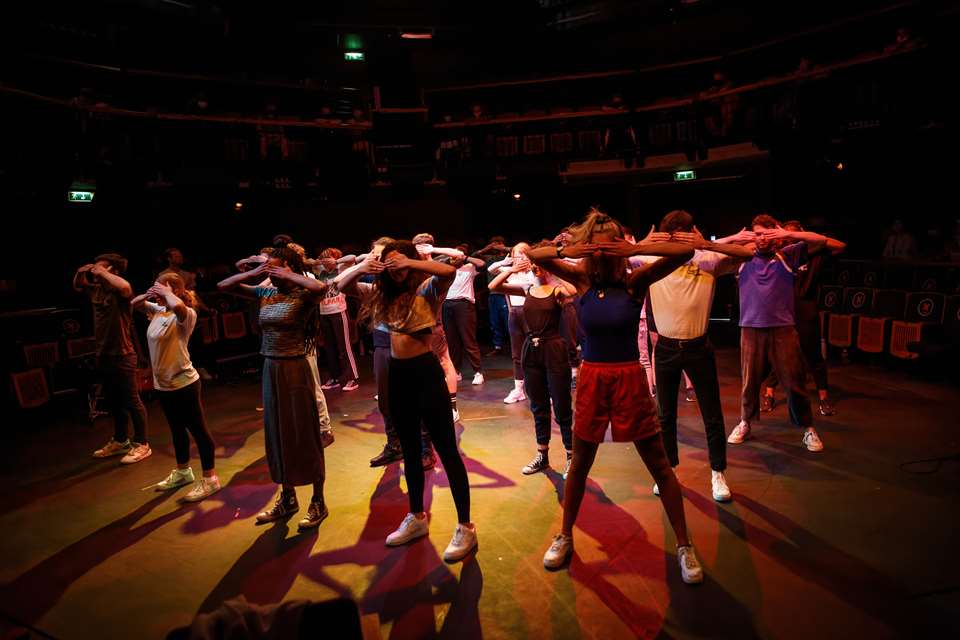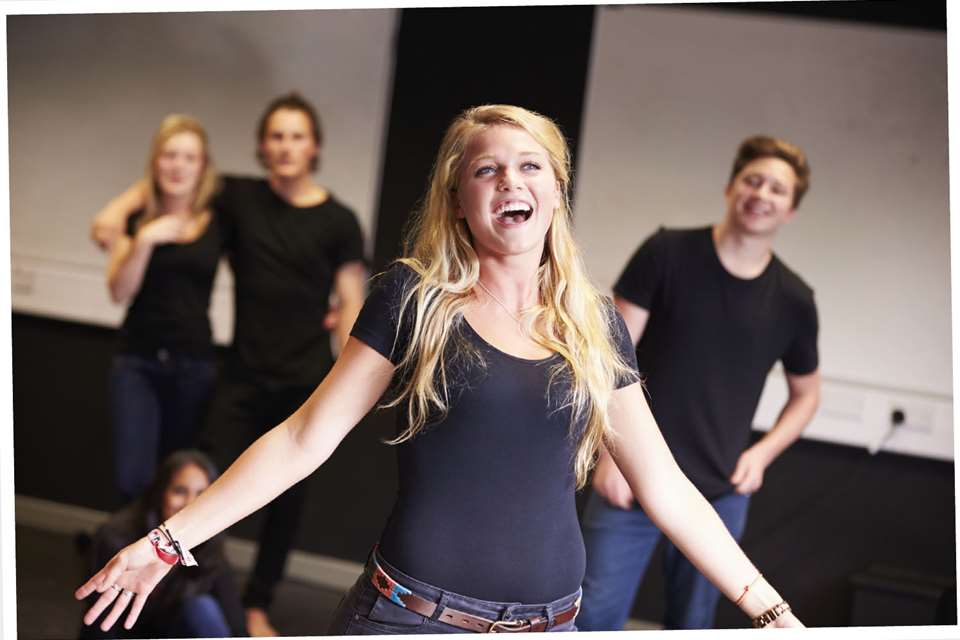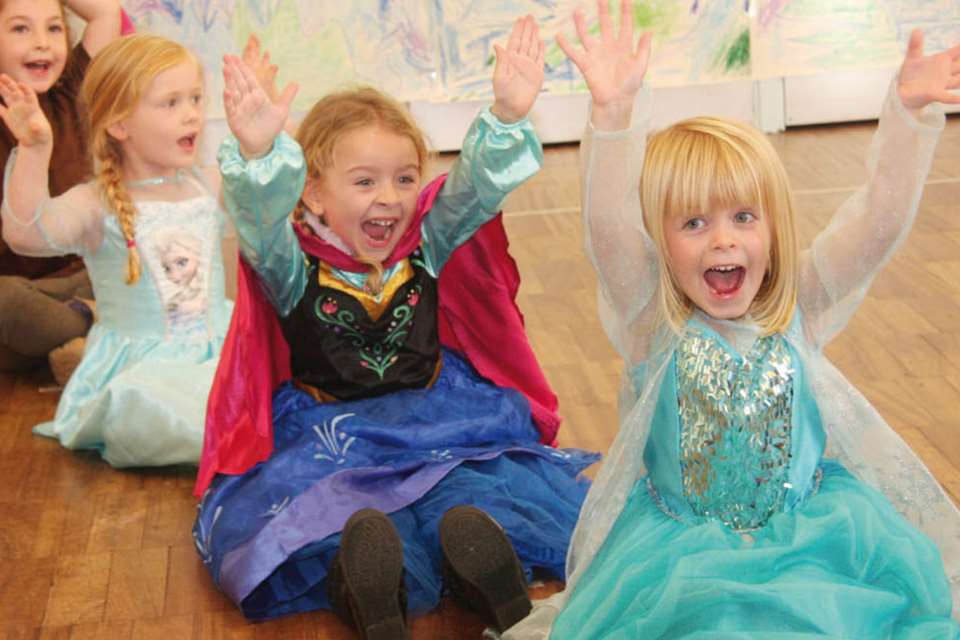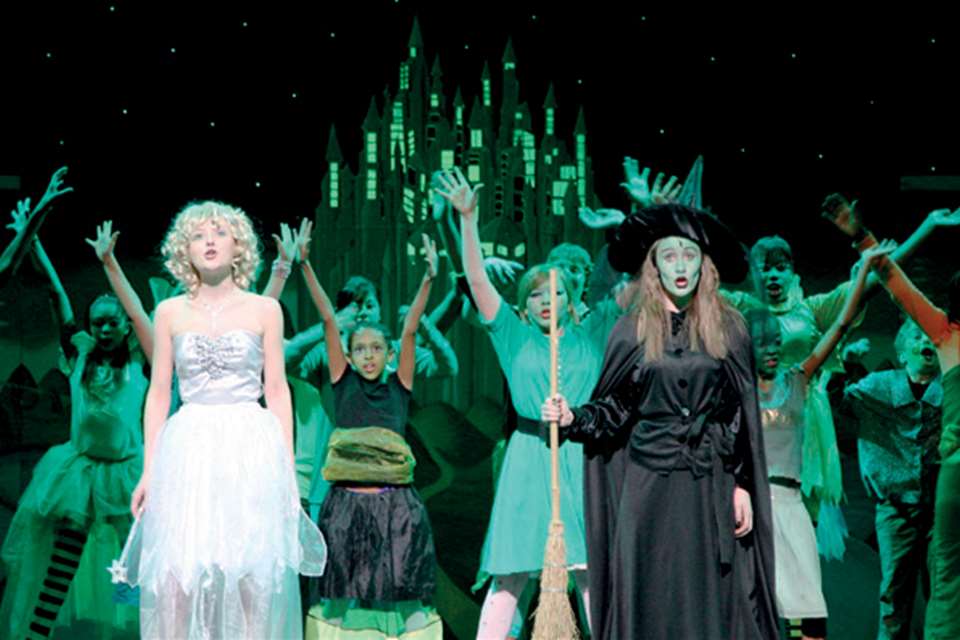Going solo: LCME’s new Musical Theatre syllabus
David Henson
Saturday, October 1, 2022
It's not only a change in name for the LCME's musical theatre examinations – it's a change in direction too. David Henson, LCME's chief examiner in speech and drama, outlines the new syllabus and what teachers can expect from each grade

Max Tyler takes part in a musical theatre workshop
Since 2019 we have all witnessed significant national and artistic events that have made us rethink our perceptions of the world and have reshaped our vision for the future, be it social, artistic, cultural or political. Emerging from the tidal wave of the Covid-19 pandemic, we are using this opportunity to change our approach to the speech and drama examinations of the London College of Music Examinations.
Developing a new musical theatre syllabus
In rethinking our examinations, the first step was to re-consider the aims and objectives of our Music Theatre qualification. The revised syllabus will be rebranded as Musical Theatre to reflect the significant components of this art form and to promote an understanding of the journey to be undertaken by each performer. The graded and diploma syllabus encourages a gradual development of the creative artistry associated with this art form and the need to understand the power of the spoken and sung word.
The main aim of these graded and diploma qualifications is for students to act through song, in order to encourage an engagement with the personal contextualisation of the text in a sung performance and present different and contrasting narratives through the performance of each piece at each grade. Each song encourages the character to have a contrasting purpose, a differing way of responding to the space around them, such as a situation or place to experience.
A set of 10 musical theatre handbooks identifying selected repertoire support each graded qualification. This is supported by performance notes, which are dictated by the various learning stages and maturity levels of the students. Each handbook provides opportunities for discussion at all stages of the preparation and performance process.
A grade-by-grade breakdown
This syllabus is inclusive in its repertoire choices, enabling candidates to reflect on their unique experiences by articulating issues, where appropriate, through a song's narrative. In each grade, a candidate's personal interpretation and responses to song lyrics are a key focus. The early grades [1-3] enable the candidate to explore simple narratives and interpret the lyrics and place the narrative in a world they can communicate and relate to.
The American Song Book [Grade 4] is considered an essential part of the musical theatre canon and is highly useful in increasing the performer's ability to consider lyrics, create characters and situations that are meaningful to the them as they bring the songs to life for an audience. The advanced grades at 6-8 explore different genres within the broader world musical theatre, giving candidates the opportunity to investigate not only the world of contemporary musical theatre (Grade 6) but also respond to the different needs of each dramatic situation within this dynamic art form (Grades 7-8).
The stages of examination in earlier grades – performance, sight reading and discussion – are suitable preparation for those candidates wishing to teach the subject or qualify for one of the three performance diplomas available in musical theatre.
What's involved
The syllabus and its impact on the performer are interrogated throughout each grade by significant, wide-ranging repertoire choices at each grade and the interaction following the performances with the examiner. All the chosen pieces must be performed from memory and can be sung in any key appropriate to the performer. The selected repertoire has been chosen for its dramatic and emotional content, while there is also the opportunity for an alternate song to be the performer's own choice. As a result, they are able to consider their approach to the material and develop skills and techniques they are particularly interested in. The resulting performance must be distinctive, personal and above all, original.
Sight reading is used in the later grades to identify the need for the performer to understand the lyric as a dramatic monologue and make emotional and dramatic decisions regarding the performance in live time.
What examiners are looking for
The ability to engage with both the sung and spoken voice, where relevant, is an exciting personal opportunity for experimentation. Examiners aren't looking for a replica version. They want to observe technically and creatively assured performances, which challenge them to sit up and take notice.
Above all, examiners will be looking for variety in the choice of repertoire, offering the potential to communicate a well-developed vocal technique that enables both the spoken and sung voice to interact to create an exciting and intelligent interpretation of each song. The text must always be at the centre of the work, with every word and phrase understood.
Movement must always be purposeful. Always remember that stillness is a valid choice! If you find yourself singing in the same place in the room and using the same hand gestures, go back to the text and relive the moment when you worked the lyric as a dramatic monologue. Always use this acting work in your sung performance. If you know the text and can tell the story of the song and portray the character's intentions, the music will take care of itself.








